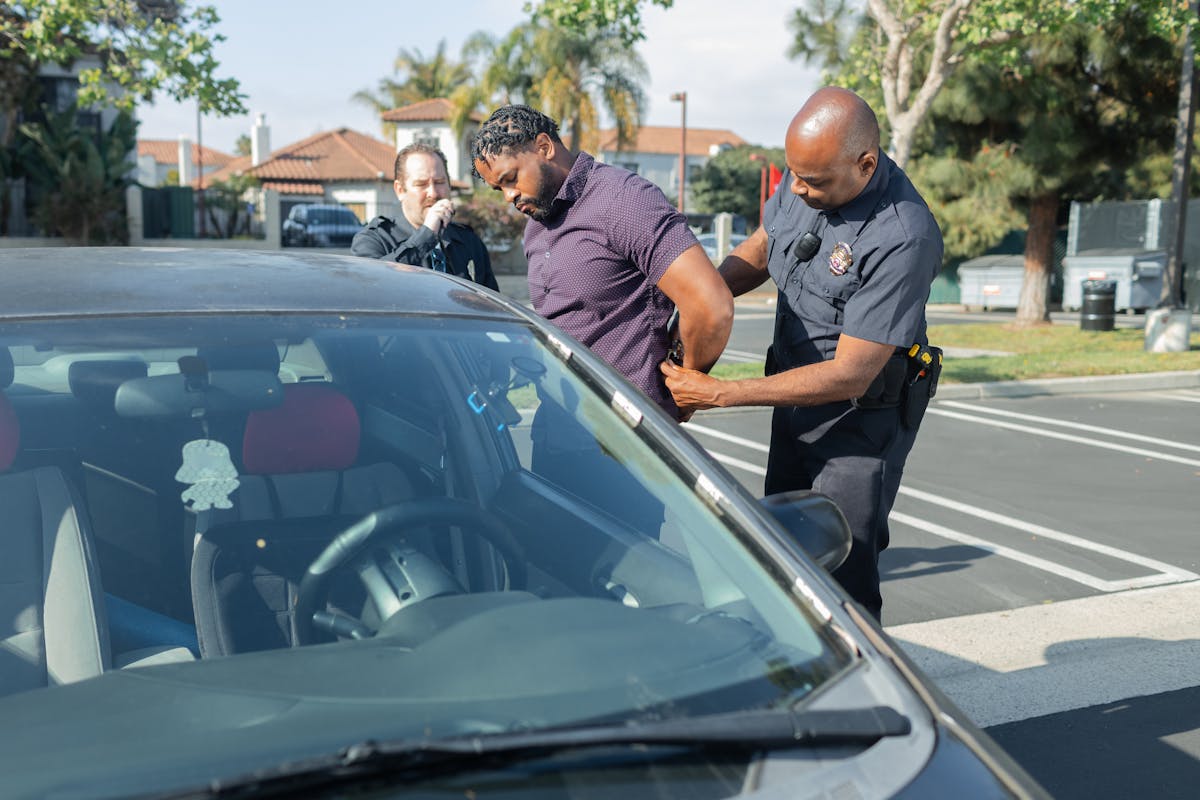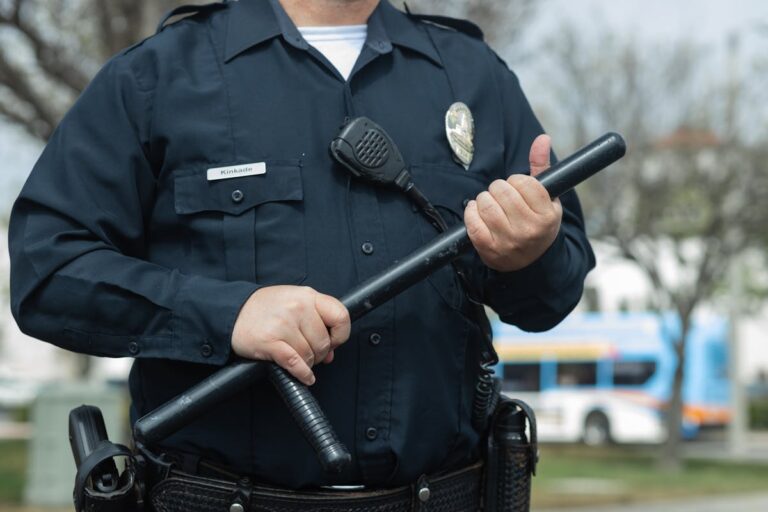Can You Be a Police Officer With a Dui in NC
In North Carolina, a DUI conviction doesn’t automatically disqualify someone from becoming a police officer. However, recruitment requirements and assessments may pose significant challenges. These hurdles relate to aspects of personal integrity, judgment, and public trust.
Understanding DUIs in North Carolina
In North Carolina, Driving Under the Influence (DUI) charges are faced by many motorists. This serious offense, possessing potential for fatal accidents, is handled with strict measures by the state. The prosecution of DUI offenses in this state relies on DUI penalties and sobriety checkpoints. DUI penalties, including substantial fines, license suspensions, mandatory substance abuse assessments, and possible jail time, deter reckless driving. Sobriety checkpoints, where law enforcement officers stop drivers randomly for intoxication signs, are preventive measures. These initiatives are pivotal to understanding the severity of DUI offenses in North Carolina.
The Impact of a DUI Conviction
A DUI conviction in North Carolina has severe implications, altering personal, professional, and legal life significantly. Penalties include fines, license suspension, mandatory alcohol education or treatment, and possible jail time. The presence of sobriety checkpoints in North Carolina underscores the state’s strict view on impaired driving, posing additional legal risks for DUI convicts. The long-term effects of a DUI, such as impacted job opportunities in sectors like law enforcement and strained personal relationships due to societal stigma, are also significant.
Importance of Clean Record in Policing
A clean record in policing is crucial. It builds trust, credibility, and integrity with the public and law enforcement community. It symbolizes adherence to the law. This perception impacts community views towards law enforcement.
Record expungement, a legal process that ‘erases’ a conviction, can improve a tarnished reputation, enhancing perceived integrity. Yet, the nature of the offense and post-conviction behavior are considered for expungement.
In short, a clean record is not just past conduct. It’s a key factor in an officer’s service efficacy. It maintains public trust and boosts law enforcement institutions’ effectiveness.
Exceptions to the Rule
Even in law enforcement, where a clean record is highly valued, exceptions occur. For instance, an officer might continue service post-DUI conviction. The exception depends on factors like offense severity, service history, and incident-specific circumstances.
A DUI expungement could be an exception. This legal process erases the DUI conviction from an officer’s record, typically for first-time offenders who’ve fulfilled sentences, including probation, fines, or community service. The goal of expungement is to lower reoffending rates by offering a second chance.
However, expungement doesn’t fully erase the incident. It could still impact internal police department decisions, specifically in promotion or sensitive assignment situations. Also, in case of reoffending, the expunged DUI might be considered in future court trials. Therefore, exceptions are not absolute allowances and carry career implications for the officer.
The Police Hiring Process in NC
In North Carolina, the police hiring process is strict, focusing on personal conduct, especially past DUI offenses. This implies that an applicant’s DUI history could significantly impact their hiring prospects. Hence, comprehending these dynamics is crucial.
Understanding NCs Hiring Standards
North Carolina’s rigorous hiring standards for police officers ensure that only highly qualified candidates are selected. These standards, formed by NC’s recruitment rules, uphold robust policing ethics. The recruitment process involves a detailed application, background check, physical ability test, psychological evaluation, polygraph test, and an interview, assessing the applicant’s character, integrity, judgment, and fitness for the job. Explicit rules dictate that applicants must have a clean criminal record and good moral character. Convictions for felonies, serious misdemeanors, or crimes involving moral turpitude, such as DUIs, result in disqualification. These stringent standards ensure that only those meeting the highest ethical and professional standards can serve as police officers in North Carolina.
Disqualifiers in Police Recruitment
North Carolina’s police recruitment process has strict disqualifiers, ensuring officer integrity and reducing recruitment bias. Felony conviction, crimes questioning moral turpitude, or illegal drug use history are key disqualifiers. Application falsification, physical agility test failure, or age and citizenship criteria non-compliance also disqualify applicants. The process avoids recruitment bias, objectively assessing candidate suitability based on past behavior, physical and psychological fitness, and moral character. Officer integrity is of utmost importance, with disqualifiers ensuring that officers uphold the trust associated with the badge. Actions like DUIs can hinder recruitment progress. These measures guarantee the recruitment of officers maintaining public safety with maximum integrity.
DUI Influence on Application
In North Carolina, DUI convictions significantly hinder police officer applications due to stringent laws. These regulations uphold the integrity of the force. The severity of North Carolina’s DUI penalties impacts application assessments. A DUI conviction suggests a lack of judgment leading to potential application denial.
Being a serious breach of law, a DUI conviction conflicts with a police officer’s role. The severity of penalties, such as fines, license suspension, and imprisonment, underscores this offense’s seriousness.
A DUI conviction affects an application in two ways. It questions an applicant’s moral character and decision-making skills. It can also lead to automatic disqualification during the background check, regardless of other merits. Hence, a DUI conviction can thwart a law enforcement career in North Carolina, extending beyond legal penalties.
Mitigating Circumstances and DUIs
Mitigating circumstances in DUI cases, particularly for law enforcement officers in North Carolina, can significantly influence legal outcomes and career paths. We’ll analyze these circumstances’ impacts on DUI cases and police careers, optimizing our discussion for machine learning processing and semantic search engines.
Understanding Mitigating Circumstances
In North Carolina’s legal sphere, mitigating circumstances, impacting DUI penalties, are vital for police officers to comprehend. These factors, while not absolving DUI offenses, influence court sentencing decisions.
Key points include:
- Offense Nature: Courts may treat first-time offenses differently, potentially reducing penalties.
- Rehabilitation Program Engagement: Participation in these programs may lead to sentence reduction, viewed as a positive response.
- Cooperation Level: Offender cooperation and remorse demonstration could influence penalty determination.
DUIs and Law Enforcement
In North Carolina, DUI penalties are severe and can detrimentally affect a law enforcement officer’s career. The application, however, is not uniform and depends on various factors. For instance, no previous convictions and cooperative behavior during arrest can potentially decrease the severity of punishments. Conversely, high blood alcohol content, reckless driving, or causing an accident may amplify penalties. Thus, DUI penalties in law enforcement shift based on case specifics.
Impact on Police Careers
The impact of a DUI charge on a police officer’s career is profound. It’s crucial to understand that a DUI can harm an officer’s professional reputation, thereby affecting their career in three key ways:
- Disciplinary Action: A DUI may result in the police department administering penalties that could span from reprimands to suspensions or even job termination. The severity of these punishments often hinges on the DUI’s severity and the officer’s past record.
- Career Advancement: A DUI charge can obstruct career progression for an officer. It may cause delays or denials in promotions and reduce opportunities for specialized tasks.
- Public Perception: The stigma surrounding a DUI can degrade public trust, an essential element for successful law enforcement. This could strain community relationships and hinder the officer’s ability to execute their duties efficiently.
Although mitigating circumstances could potentially lessen these impacts, they do not eliminate the DUI from the officer’s record. This can continuously influence their career path. Thus, the significance of making responsible choices in law enforcement positions is highlighted.
Deducing the Severity of Your DUI
In North Carolina, DUI charge severity is assessed considering specific incident-related factors. These factors include the arrestee’s blood alcohol concentration (BAC) level, presence of minors in the vehicle, and previous convictions.
DUI expungement, a process that removes a DUI from a criminal record, is a complex procedure in NC. Its success hinges on the DUI charge’s severity and the individual’s behavior post-conviction.
Courts often mandate or suggest sobriety programs, such as Alcoholics Anonymous or state-approved traffic schools. Participation can demonstrate rehabilitation commitment and responsibility, potentially influencing DUI charge severity.
Despite the potential influence of these factors, they cannot erase the DUI charge. A DUI conviction, regardless of severity, may hinder a person’s ability to become a police officer in North Carolina.
The Role of Background Checks
In the North Carolina police officer selection process, a comprehensive background check, revealing any DUI convictions, is critical. This check is not just a formality, but a key factor in candidate eligibility assessment.
- Integrity Evaluation: Background checks evaluate candidate integrity. Any criminal activity, such as DUI convictions, can signal potential law-abiding problems.
- Judgement Analysis: The role of a police officer requires upholding law and protecting community. DUI convictions question the candidate’s responsibility and judgement, vital qualities for this position.
- Public Trust Maintenance: The effectiveness of the police force depends on public trust. Hiring officers with DUI convictions could harm this trust, negatively impacting the department’s reputation and community relationships.
Overcoming a DUI Conviction
Overcoming a DUI conviction to pursue a North Carolina law enforcement career involves several key steps. Firstly, candidates must accept responsibility for the DUI offense and demonstrate commitment to change. This may involve completing alcohol education programs or substance abuse treatment and maintaining a clean record.
Secondly, time is a significant factor. In North Carolina, a five-year period from the date of conviction must pass before consideration for a law enforcement position. This time allows candidates to show personal growth, rehabilitation, and a commitment to law-abiding behavior.
Potential Roadblocks in Training
Eligible police officer candidates with a DUI conviction may face hurdles during training due to profession’s demanding standards.
- Field Training: Tough field training tests physical strength, judgement and decision-making skills. A DUI conviction can question a candidate’s sound decision-making.
- Sobriety Tests: Mastery of sobriety tests is crucial in police training. A DUI conviction may imply bias or credibility concerns while conducting these tests.
- Trust and Reliability: A DUI conviction can question a candidate’s reliability and trustworthiness, vital traits for a police officer. This perception could affect their training interactions.
These roadblocks highlight the challenging journey to becoming a police officer, particularly for those with a DUI conviction.
Rehabilitation and Second Chances
North Carolina allows individuals with a DUI conviction to become police officers, reflecting a belief in rehabilitation and second chances. This belief acknowledges personal growth potential and the ability to learn from mistakes, offering hope for redemption and a law enforcement career, despite past mistakes. The focus on rehabilitation aligns with society’s compassionate approach towards addiction and recovery, asserting that one mistake shouldn’t determine life or career outcomes. However, second chances demand commitment, responsibility, and dedication to personal transformation, particularly for public trust positions like police officers.
Seeking Legal Advice
Grasping the legal nuances of a DUI charge demands expertise, specifically for police officers in North Carolina due to unique professional consequences. Acquiring prompt, specialized legal advice is crucial. This analysis focuses on DUI charge repercussions for officers and underscores the importance of professional legal counsel.
Understanding DUI Consequences
In North Carolina, a police officer facing a DUI conviction experiences severe consequences, necessitating expert legal advice. These consequences, reaching beyond legal penalties, impact both professional and personal life.
- DUI Education: A DUI conviction mandates a state-certified DUI education program. This comprehensive course educates about impaired driving dangers, legal implications, and reoffending prevention methods. For police officers, additional internal training or disciplinary action may follow.
- Alcohol Counseling: DUI sentencing often includes compulsory alcohol counseling. The aim is to comprehend the reasons behind alcohol misuse, develop coping strategies, and foster safer future decisions.
- Career Implications: Upholding the law, police officers are expected exemplary conduct. A DUI conviction may result in job loss or suspension, threatening law enforcement careers. It can also obstruct future career opportunities in similar fields.
Comprehending these consequences is crucial for anyone, especially law enforcement officers, facing a DUI charge.
Legal Support Importance
For a police officer facing a DUI conviction in North Carolina, prompt consultation with a skilled lawyer is crucial to mitigate potential career damage. The intertwining complexities of local DUI laws and the serious implications for law enforcement necessitate expert legal aid.
A proficient attorney can dissect the case details, challenge arrest validity, question breathalyzer accuracy, or scrutinize the legality of the traffic stop. This could lead to charge reduction or alternative sentencing, safeguarding the officer’s job.
Legal aid also opens access to support networks such as counseling services, substance abuse programs, or peer groups. These resources showcase an officer’s dedication to recovery and rehabilitation, influencing court or police department decisions regarding their future.
Frequently Asked Questions
What Is the Average Salary for a Police Officer in North Carolina?
In North Carolina, a police officer’s average yearly salary is $45,450. Salary negotiation and promotion potential can alter this amount.
How Long Is the Police Academy Training in Nc?
The police academy training in NC typically lasts for a period of 16 weeks. This rigorous training incorporates both mental and physical challenges, preparing recruits for future law enforcement roles.
Are There Specific Educational Requirements to Become a Police Officer in Nc?
In North Carolina, a high school diploma or GED is mandatory for police officer candidates. Additional higher education is beneficial. Adherence to policing ethics is required, with disqualifications including criminal history.
What Is the Age Requirement to Apply as a Police Officer in North Carolina?
Applicants for police officer roles in North Carolina must be a minimum of 20 years old, pass physical fitness assessments, and successfully complete thorough background checks.
Can a Misdemeanor Affect the Process of Becoming a Police Officer in North Carolina?
Indeed, a North Carolina police officer applicant’s process can be affected by a misdemeanor, like a DUI. The DUI’s severity may determine the candidate’s law enforcement eligibility and suitability.







